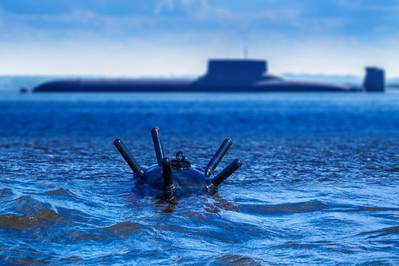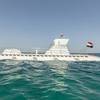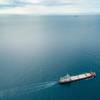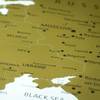Germany, Eight Other Baltic Sea Nations Seek to Jointly Buy Naval Mines
Germany and eight other countries on the Baltic Sea aim to jointly procure naval mines, German Defence Minister Boris Pistorius said on Tuesday, as Russia is taking an increasingly assertive stance in the Baltic Sea region.
Speaking to reporters on the sidelines of the NATO summit in Washington, Pistorius said Russia had been challenging the borders in the Baltic Sea time and again.
"Just recently we have seen how Russia tries to extend Russian territorial waters outside Kaliningrad. We are all unmistakably clear that we will not allow such advances," he said.
"To that end, we need the necessary capabilities for deterrence and defence, one of them being naval mines."
Pistorius was referring to an incident in May when Estonia blamed Russian border guards for removing navigation buoys from the Estonian side of the Narva River separating the two countries.
The location of buoys between Russia and Estonia had been disputed since Russia invaded Ukraine in 2022, the Estonian police and border guard said.
Used by an average of 1,500 vessels per day, the Baltic is one of the world's busiest seaways. Shallow and crowded, it can only be accessed through three narrow straits.
Russia has significant military capabilities at St. Petersburg and Kaliningrad, and NATO sees shipping lanes as well as undersea cables at risk in case of a conflict.
If any of the straits were to be closed, sea freight traffic to Sweden and Finland would be hit hard and the Baltic states completely cut off.
Mines can be used to protect ports or block waterways.
The eight countries seeking to jointly procure naval mines with Germany are Denmark, Estonia, Finland, Norway, Latvia, Lithuania, Poland and Sweden.
Pistorius said joint procurement would have many benefits since it would lower costs and enable shared logistics and maintenance.
"We'll save money and help us to be more effective. And on top of that we are contributing to meeting the NATO capability targets in the area of battle-decisive ammunition and reducing the level of fragmentation of our European weapons systems."
(Reuters - Reporting by Sabine Siebold; Editing by Emelia Sithole-Matarise)














